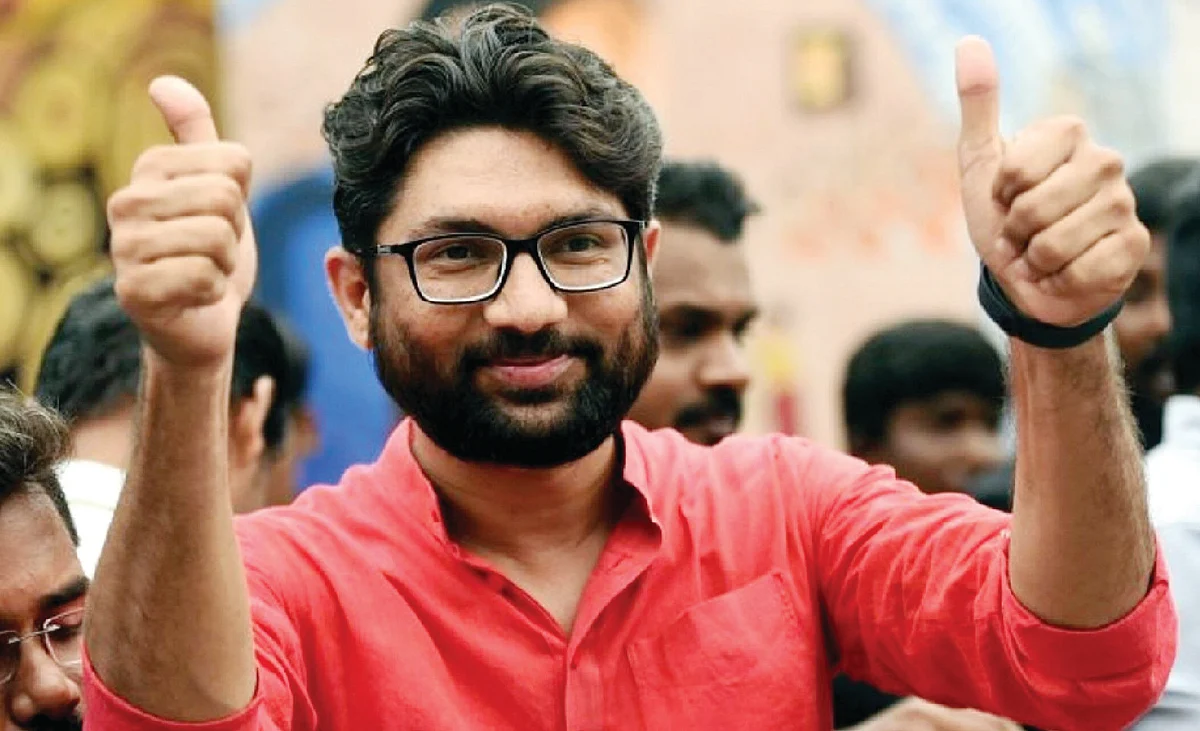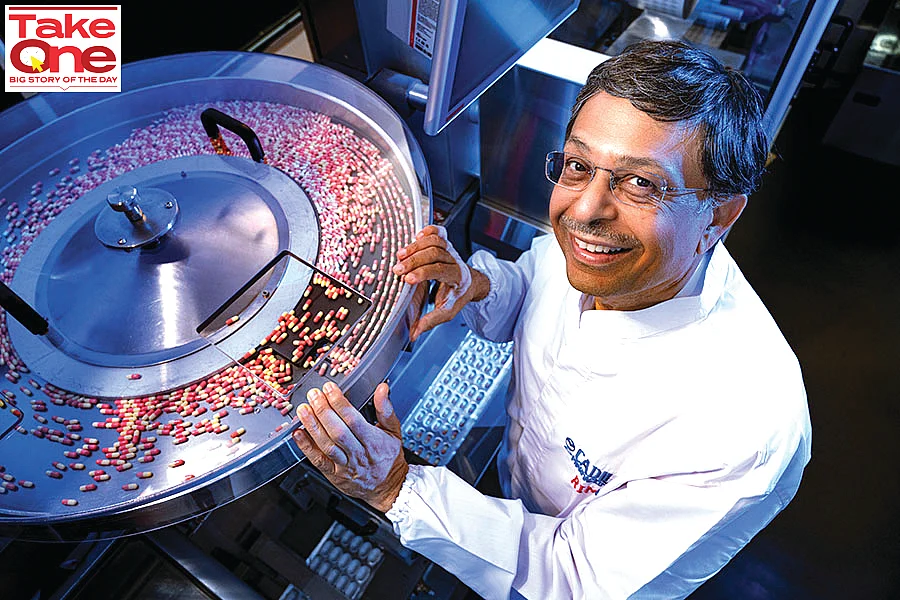States 360°: Gujarat - Life is a big roadshow in India’s westernmost state
The latest report of the National Crimes Record Bureau (NCRB) provides a grim picture of custodial deaths in the state and a shocking lack of accountability

The prime minister’s fascination with ‘road shows’ remains as strong as ever. Whether it is an international cricket match, a women’s conference, election campaigns or the Vibrant Gujarat summit, the events are incomplete without a ‘road show’.
The 10th edition of the biennial Vibrant Gujarat summit was no exception. The prime minister hit the streets again the evening before the three-day event started on 10 January.
What these road shows are designed to achieve besides burnishing the prime minister’s brand image is not clear though. The political opposition, while grudgingly admitting the summit enhanced the state’s image as an investment ‘destination’, especially with the state’s former chief minister now the country’s prime minister, claims there is a huge gap between the hype and the reality.
The summit has, since 2019, sought partner countries for the event, and their numbers have steadily increased. This year saw 34 confirmations, 21 of the nations participating for the first time. Conspicuous by its absence this year was Canada, which partnered with the Gujarat government five times earlier.
At the event, promotional videos and publicity material highlighted the state’s march into greater industrialisation. While the state was earlier known for its pharma, chemical and textile sectors, it is now known for automobiles, ceramics, renewable energy and ports too. With the backing of the Union government, Gujarat has also made inroads into the semiconductor, aircraft manufacture, defence, hydrogen ecosystem and space-related industries, even leaving several more industrialised states behind.
The state government claims to have attracted investment worth $55 billion in the last two decades, and points out that 13 per cent of Gujarat’s FDI comes to the automobile sector, outshining India’s national average of 5 per cent.
It is difficult, however, to gloss over the poor social indices of the state—including the stunted, wasted and underweight children. Gujarat ranks at 22 or lower among the 30 states for child health indices.
The state is also one of the largest hazardous waste generators in the country, and fourth for plastic waste. One report claimed that only 80 per cent of its industrial units comply with waste water treatment norms. It has the third highest consumption of fossil fuels per capita too.
Still, no time to dwell now; these are problems to keep for another year (or term). Next ‘road show’: Ayodhya, later this month.
---
No. 1 in custodial deaths
Another ‘best in class’ for Gujarat, and not a good one: the latest report of the National Crimes Record Bureau (NCRB) provides a grim picture of custodial deaths in the state and a shocking lack of accountability. The highest number of such deaths in the country between 2020 and 2022 were reported from Gujarat. Yet, nobody has been convicted for custodial deaths since 2016.
On 9 January, a division bench of the Gujarat High Court finally upheld the life sentence of former IPS officer Sanjiv Bhatt for the custodial torture and death of a person in Jamnagar in 1990, when Bhatt was assistant superintendent of police there. Bhatt was first convicted by a sessions court in June 2019—the only such conviction from 2016 to 2023.
In 2022 alone, there were 14 deaths in police custody. Magisterial inquiries were ordered in 10 cases, judicial inquiries in four. Remarkably, no FIR has been filed and nobody has been charged as yet in any of them. As many as 83 custodial deaths within 24 hours of arrest were reported between 2016 and 2021. Families of 26 of the deceased demanded judicial inquiries; the mandatory magisterial inquiry was conducted in only 42 cases; charge sheets were filed in just eight cases.
Not a pretty picture of policing.
---
Occupational hazard
Being an opposition MLA is risky business in Gujarat, as Jignesh Mevani had discovered. The Assam police had flown all the way to Gujarat to arrest him and drag him back over a frivolous complaint. Now, it is the turn of another opposition MLA, Chaitar Vasava, who has been in prison in Bharuch for the past two weeks.

Vasava is accused of brandishing a gun at a forest department official and snatching several thousand rupees from him. The police told the court that the incident happened inside a forest where the officer had gone to ostensibly evict tribal communities who have been cultivating patches of land in the clearings. The police also claimed that they had recovered ‘only’ Rs 30,000 from the MLA’s house and were not able to recover the firearm allegedly used to intimidate the officer.
Vasava, a firebrand tribal leader himself and currently an Aam Aadmi Party MLA, has been giving the state government a tough time with hard-hitting questions, say his followers and his lawyer. The fabricated case is a handy way to keep him from embarrassing the government, they say. But the police in Gujarat are known to be ‘tough’ and ‘reasonable’.
---
Bulgarian ‘troublemaker’
When Cadilla, one of our largest pharmaceutical firms, hired a Bulgarian woman as a ‘flight attendant’ in November last year, it did not bargain for the embarrassment she would cause.
She accused chairman and managing director Rajiv Modi and one of his aides of molesting and raping her, a complaint that the police did not take seriously at first, even refusing to register a case. The persistent woman, however, knocked on the doors of four different police stations and a lower court until the Gujarat High Court ordered the case be registered. It finally was on 31 December.

The question remains why Cadilla needed a Bulgarian flight attendant. The explanation doing the rounds is that private corporates prefer flight crew unfamiliar with English and Indian languages so that they can’t eavesdrop on business conversations. The lady says her designation was changed to ‘personal attendant’ to Modi when he travelled.
Gujarati media reports claim she complained to the Bulgarian embassythat Modi and his accomplices were coercing her to withdraw her complaint and file an affidavit stating that the dispute has been settled by demand draft, for Rs 24 lakh. It is not clear whether she is still in India, but the chances of case closure due to lack of evidence are high, it is speculated.
---
Hic, hic, hooray!
In deference to Mahatma Gandhi, Gujarat has been the only prohibition state in India ever since its institution in 1960. But tourists and revellers have long known how to live it up without catching any judgemental official eyes.
For the past three years, however, the Gujarat government—hot on the heels of Madhya Pradesh allowing open sales of liquor in supermarkets—relaxed its prohibition norms for those with ‘medical grounds’. In these three years, a significant proportion of the 6.5 crore Gujarat population seem to have developed health issues that require a liquor permit.
According to the prohibition and excise department, 27,452 permits were issued in 2020—and they gave out 43,470 in 2023.
Ahmedabad tops the list with 13,456 permit holders, followed by Surat (9,238), Rajkot (4,502), Baroda (2,743), Jamnagar (2,039), Gandhinagar (1,851) and finally Gandhi’s home town Porbandar (1,700).
All of these are persons the medical board diagnoses as needing liquor for their continued survival in good health.
Follow us on: Facebook, Twitter, Google News, Instagram
Join our official telegram channel (@nationalherald) and stay updated with the latest headlines
